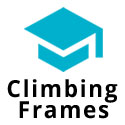How to Pick the Right TEFL Course.
EFL? TEFL? TESOL? If you’ve never navigated the waters of teaching English as a foreign language chances are you might find all of the information out there a bit overwhelming. How do you know which course is right for you, which school or qualification provider to attend, or even if that provider is accredited? Relax, we’ve got you covered.
What a TEFL course should entail.
No matter what course provider you choose, all TEFL courses need to meet the same criteria, which includes:
- The course should be accredited. In the UK, there are a number of official accreditation bodies that outline a number of stringent rules on what a TEFL course should entail, as well as carry out regular checks to ensure standards are both met and kept over time. A few of these bodies are the Qualifications and Curriculum Authority, Open and Distance Learning Quality Council, Accreditation Council for TESOL Distance Education Courses, and the College of Teachers. Being accredited means that the school or course provider has met the minimum standards set by the British Council and that the course itself upholds a certain quality standard.
- It must meet the number of hours set by the British Council. A TEFL qualification requires one hundred and twenty study hours combined with at least six observed practice lessons. The practice lessons will often be on site and will be monitored by a trained TEFL tutor.
- Grammar is a must. The TEFL course must have a comprehensive grammar section. Though it may come naturally as a native English speaker, grammar will be a big part of what is taught in the classroom, and therefore you must know and be able to explain English’s complex grammar rules.
- The school or provider should help post certification. It takes a lot of preparation to move to a foreign country, so if you are interested in a TEFL qualification for the purposes of teaching abroad, you should go with a provider who offers help post certification, such as with job placement, travel, visas, accommodation, paperwork, and anything else you may need to get through the first few weeks in a foreign country.
- The TEFL course should work with your future plans. Each country is naturally going to have their own unique way of handling things, everything from the hiring of a prospective TEFL teacher to how students handle their day to day school routines. If you know the direction you’d like to go with your TEFL qualification, your experienced TEFL tutors should help prepare you for these specific differences.
Online or in the classroom?
Whether you choose to study online or in the classroom is entirely down to personal preference and schedule allowance, for so long as the course is from an accredited school or provider, the end qualification is the same. Many students find the online option to be the most flexible means by which to earn their TEFL qualification, as it allows for students to study at their own pace, in their own time. With an organisation such as The TEFL Academy, successful completion of the one hundred and twenty hour course will qualify individuals to teach both in the UK and abroad, as well as prepare them for teaching both children and adults. And rest assured, with The TEFL Academy the TEFL qualifications are accredited and internationally recognised. In this particular instance, The TEFL Academy offers either a solely online one hundred and twenty hour course with support and help from a dedicated team of tutors, or a combined course whereby twenty of those hours are in person with a tutor.
Diploma courses.
If you’re looking for something a bit weightier than the mere one hundred and twenty hour TEFL qualification, you may consider going the route of a Diploma qualification. While many countries around the world are looking for TEFL teachers with just the initial TEFL qualification, a few do insist on a bit more. Trinity’s DipTESOL and Cambridge’s DELTA courses are the most popular among this option and, while it is possible to complete the Diploma course in just eight weeks’ time, it can take students up to an entire year, especially if done on a partly online basis. Yet the Diploma course will open doors not available to those with the basic TEFL qualification, such as jobs among the top schools or positions as teacher trainers.
Further application.
Of course, the world of teaching English as a foreign language doesn’t end with just the initial qualification, although this may be the final stop if you’re just considering TEFL as a means of funding travel and adventures whilst abroad. But for many students, teaching English is looked upon as a lifelong career prospect, with many staying in their home countries to teach English as a second language in both public and private institutions or under private tutorship, or even becoming TEFL tutors themselves, imparting the means by which to teach on the next generation. If the latter is what interests you the most about TEFL, you can actually continue your education beyond the initial qualification by going for a masters in TEFL/ESOL. Though the MA route is for the more academically minded, it’s a great option for further education and can even be done online in your spare time whilst teaching.
- The Impacts of Teaching in Africa - December 5, 2022
- Job Searching In The Digital Age: A Guide - September 3, 2022
- Why Golf is one of the Best Ways to Learn English - June 15, 2022
- How to travel smart with medical conditions - April 24, 2022
- 5 Ways TEFL Teachers can Develop New Skills - December 14, 2021
- How to Calculate the Cost of a Postgraduate Degree - April 11, 2021
- Building a career as a TEFL teacher - December 29, 2016
- Learning English through Art - August 31, 2016
- Does Art Have A Place In The Language Learning Classroom? - August 31, 2016
- A Review of the TOEFL Exam - June 22, 2016
















